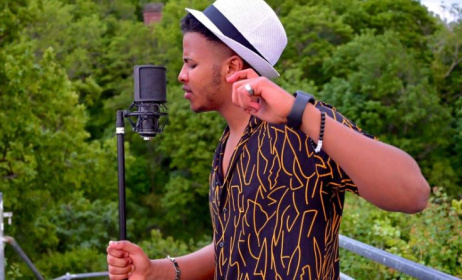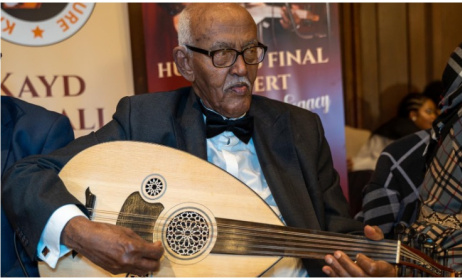Somalia's Aar Maanta denied US visa
Somalian musician Aar Maanta has cancelled his month-long residency in Minnesota in the US.
As of 4 October, Aar Maanta who is the only Somali and Muslim in the band, was yet to receive a visa, even though the artist and his band The Urban Nomads were scheduled to begin their residency on 2 October. Organisers of the residency, a consortium of Minnesota-based performing arts presenters and universities led by the Cedar Cultural Centre in Minneapolis, made the announcement on Wednesday.
“I was shocked to be singled out and discriminated against by the Consulate," Aar Maanta told an online publication. "It is heart-breaking to know that systematic discriminatory rules like the ‘Muslim ban’ put into practice in this day and age are affecting not only me but people in far more vulnerable situations. It’s extremely disappointing for my band and me to lose weeks of work that we have been planning for months.”
Yesterday the musician shared a public apology on his Facebook page: “Due to visa issues my upcoming Minnesota shows were cancelled. Apologies to all who were looking forward to our shows, will share news regarding this soon.”
Comments to his post brought up issues of security and religion. “Sorry Aar," wrote Hinda Sheikh Maxamud. "It's because of the Muslim ban, Somalia was one of the countries on that list. Aar has UK passport but they'll use his birth place as a reason to deny his visa! Trump making America great again.”
The London-based musician and his four member band were to take part in the Midnimo program which was launched in 2014 in efforts to present the world’s leading Somali artists in residencies and events that increase their understanding of Somali culture through music.
Fadumo Ibrahim, the program’s manager at the Cedar Cultural Centre, said that he has faced visa challenges when bringing Somali musicians for the residency. However, the delay of Maantas’ visa was surprising given his work with the centre in the past. “This case is a concrete example of how travel restrictions and the travel ban limit artistic voices and freedom,” said Ibrahim.
“While it’s obviously important for the artists," he continued, "it’s equally important for the community who had been anticipating this residency. Maanta’s visit to Minnesota would have brought hope and positivity to the Somali and larger communities here at a time when we all really need it.”




































Comments
Log in or register to post comments